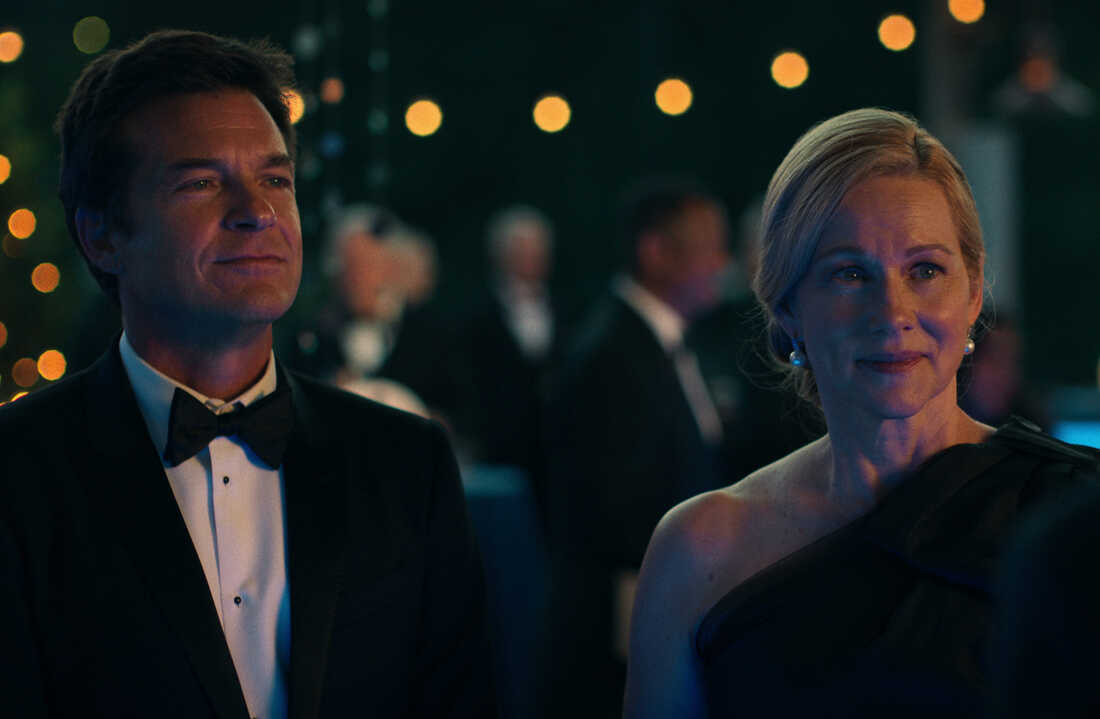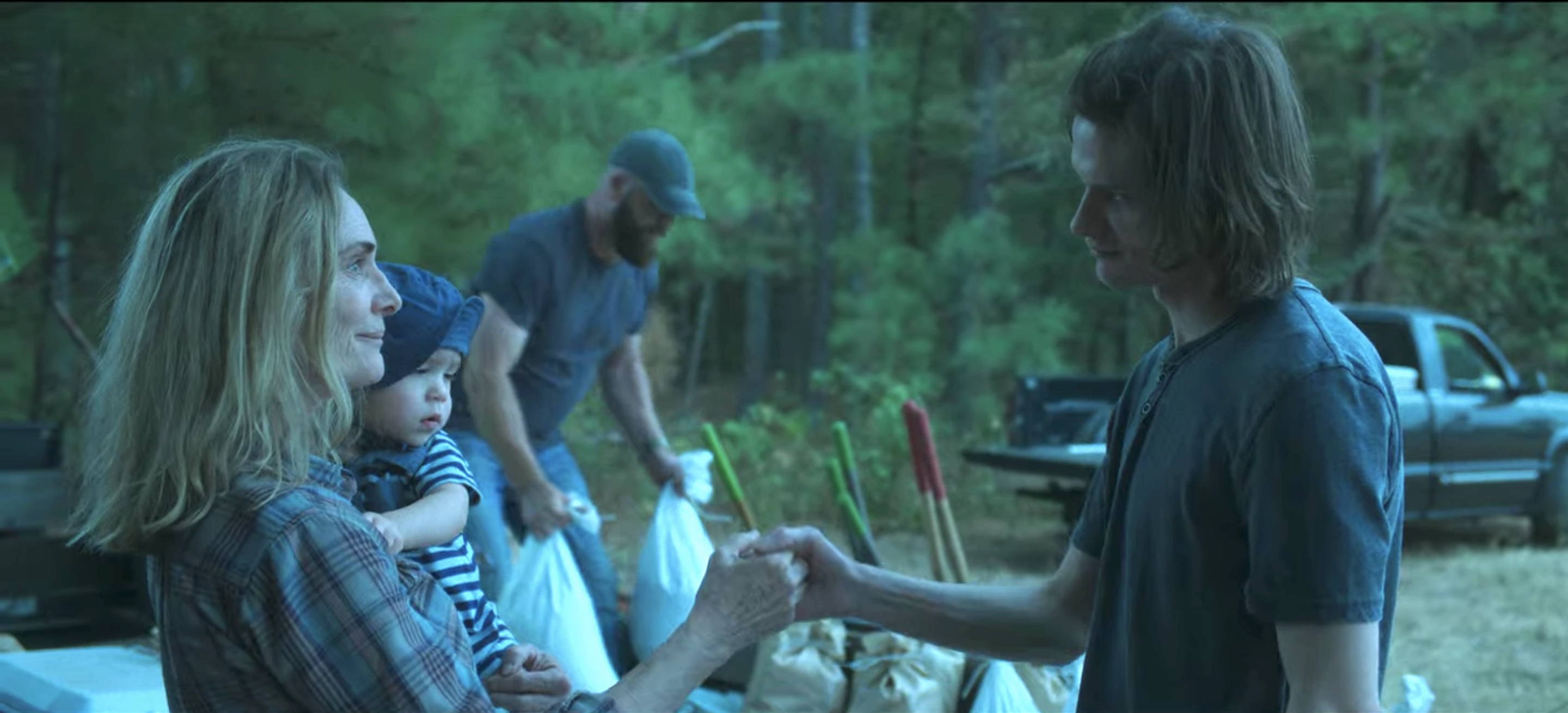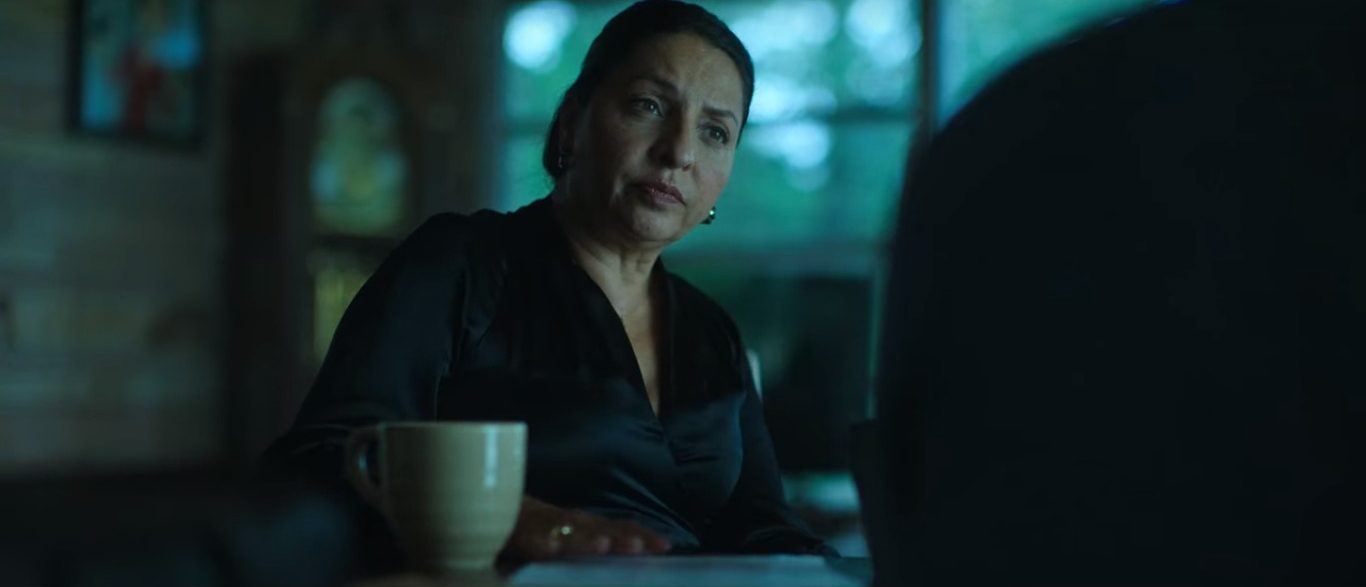
As film has become, with the dominance of the superheros and other archetypal characters, mostly a medium reflecting the importance of traditional myth-making in changing times, television has become the medium best capable of telling complex stories with the the level of tragic moral confusion needed to probe the intricacies and challenges of contemporary character and society.
The best shows of tv’s new golden age have almost all been crime dramas, but why? Perhaps watching characters thrust into power and the moral problems it poses forces characters to reveal themselves in ways we wouldn’t see in almost any other situation. While power and crime aren’t exactly the same thing, exploring the lines between them makes for interesting drama. But great tragedy has always been about more than just the moral confusion of its flawed characters, but of society as well. Great drama therefore needs sympathetic characters–not just interesting ones–ones that stay sympathetic or at least understandable even in their moral degeneracy. If it is simply a character’s weakness driving the moral conflict and not something symbolic of what we all might potentially face, it is just spectacle and diversion.
Out of all the great dramas of recent television,”The Wire” may still be the best, somehow reaching not only social relevance, but a mythic level of symbolic resonance with the most deeply entrenched and eternally recurring problems of life, while still including one of the most tragically beautiful studies of capitalist society and the characters it produces–characters struggling in the grip of the mythic forces of fate formed by contemporary institutions.
Another great, the “The Sopranos” is a fascinating character study of a patriarch and his family and their old-fashioned criminal institution struggling to hold on to power and navigate the complexity of postmodern life. Its characters, however, remain largely incapable of adjusting to the times. Their lives paint a portrait of a decaying and increasingly impotent form of patriarchal power.
“Ozark”, however, is a very different series, and also underrated; it may even be one of the best. It stands out with a particularly interesting quality that makes it a relevant story for understanding power in our time. Unlike any other show, it underscores the shift in society from the traditional patriarchal power structures into the primordial feminine power of networks.
This gender association is meant to be archetypal, not literal. So it is not implying that men no longer hold power, but that the kind of power held by men or women is becoming less characterized by those capable of wielding superior authority or disciplinary force, and more by those capable of forming superior networks.
It rewards not those who stand out as leaders and win subservient loyalty, but those who can create better connections by seducing people into the fold. It is a more lasting form of power because it is based on relations of mutual implication, not essentially on specific people or objects.
In some Eastern thought, power itself (shakti) is considered feminine, not because women do or do not hold power (usually not in traditional societies), but because they are power, which is always essentially relational, and well symbolized through the relation to that universal object of desire: woman. By trying to hold or wield power based on objectifying and possessing power as an object or objects of desire, one can at most merely change the flow of power into specific locations, but not really grasp it or become its essence.
To truly become power, one must not just posses an object of desire (or fear), or even become such an object, but become woven into a stable fabric of their relations that transcends an identity with a particular object of desire (which as women know is a fleeting form of power). To do otherwise only courts an inevitable fall as vitality fails to maintain the structure of desire (or its negative image, fear). But of course, even stable lasting power can be a trap if it is not the kind of power and pattern of relations one truly desires, a trap most worldly power becomes in the end.
In any case, modern liberal power has taken some time to wear down traditional hierarchies, but they are becoming more and more swallowed up, and their power distributed to those most capable of forming superior schemes in capitalism’s game of seduction. It has also taken some time for creative media to catch up with postmodern forms of power, instead of just depicting male characters struggling to adjust to it (as in “Breaking Bad” and Sopranos”).
“Ozark” in its early days was compared to “Breaking Bad”, which like “Ozark”, told a story of its characters’ fall into crime. But in “Breaking Bad” we get a kind of anithero myth, a tragic story indeed, but one that does not really bring sympathetic catharsis; its main character Walter barely even suffers, actually relishing in the inevitable tragedy of his fall from a powerless postmodern man into a premodern tribal warlord he well knows he cannot sustain. But that is besides the point. He just wants a taste of power and doesn’t really ever care what it costs. He just wants to prove he can win, if only for a short time, and we are seduced into the spectacle of seeing how he will get his way.
“Ozark”, however, like “The Wire”, but unlike “Breaking Bad”, is full of sympathetic characters, though sometimes doing admittedly horrible things. We get the impression in both “The Wire” and “Ozark” that the characters, despite some bad choices, do what they do out of a kind of necessity. “Breaking Bad”‘s Walter does what he does because he cannot handle his emasculation in postmodern society; his ascent to power is tragic because he essentially sacrifices his family and eventually everything to service his ego. But in the end, he seems to think it was worth it, that it was better than living and eventually dying as a weak man. It is a bleak and nihilistic portrait of power in our time: either regression to primal masculine brutality, or subservience to weakness in a feminized society.
“Ozark” admittedly traverses similar territory; its central family of characters cannot completely avoid explicit violence; they definitely make choices that corrupt and endanger others when the contrary choice would seem to not, because they want to win the game. But the wisdom of the otherwise moral choice is framed as being questionable at second glance. Do our protagonists turn themselves in, work for the FBI at a low level, plunging themselves back and their children into the powerless class at the mercy of the law and its corruption, or become more powerful and work with the FBI at a level where the two sides of the law meet? The morality and potential mortality of either choice is unclear, but the power-logic is crystal-clear.
And of course, “Ozark” does begin just like “Breaking Bad”, with what seems like a similar male protagonist, Marty, not only feeling weak, but actively being cuckolded. He has the choice of ruthlessly getting back at his wife Wendy, or showing mercy by bringing her more deeply into the fold of his life of crime. But we learn that this is exactly what she wanted; in fact, we learn that it was his desire to mitigate her feeling of waning power in her role as mother which motivated his decision to enter the crime world in the first place. Gradually, she and other female characters become the center of the show and taken together model some of the pitfalls of contemporary power.
Marty’s protegee “Ruth is, like many characters from “the Wire”, born into low-level crime, and is trying to climb out into the higher levels and potential legitimacy, modeled by Marty. In the end, like characters in “The Wire”, she cannot leave her past behind. She cannot accept that Marty doesn’t stand up to his wife Wendy like a traditional patriarch would. In the end, she chooses to follow in her father’s footsteps of masculine retributive violence, even as she almost makes the jump to Marty and Wendy’s way of lasting relational-power through working with women and the law.

This was also the mistake of a female heroin farmer, Darlene, who eventually loses her life for similar reasons. She is the most competitive and jealous woman of the show. She kills her masculine patriarchal husband and replaces him with a boy-lover, but merely becomes the patriarch, refusing to work with Ruth or other women, when it could have allowed her to compete with Wendy in the longer game.

A female FBI agent almost gets Marty to turn himself in, but also in the end chooses desperate shows of force and autonomy rather than surrender to the corrupt politics of the system–an act which only delays the inevitable and leads to more deaths.

A very masculine but female lawyer of the cartel, Helen, attempts to outmaneuver Wendy and Marty but because she cannot offer the male cartel leader the legitimacy he wants, she remains just another symbol of his unstable form of power so characteristic of that seized through force and masculine autonomy, and brutally loses her head.

In the end, however, the cartel leader loses his life and power as well when Wendy, much to the chagrin of Marty, teams up with the cartel leader’s sister, a woman who best represents the structure of modern power, preferring to rule from the background, not through fear and loyalty, but through backroom deals and backstabbing bribes.

“Ozark” ends as it should, with a subtlety of tragedy perfect for our morally complex times. Wendy and Marty get out alive and with an increase in power, but the power they achieve is not their own, as it never really is. Power as explicit authority and force is temporary and precarious. Power as social fabric is lasting and difficult to upset, but also difficult to resist. Not only does one become its slave, one corrupts others, pulling them into the fabric now further entrenched.
The cartel leader wanted legitimacy so he could at least free his children from the life of precarious power he had led and gain some kind of security. Marty and Wendy achieve their legitimacy and security, but they brought with them the corruption that their children and future generations will have trouble escaping.
Marty’s choices were limited as soon as he joined the cartel, and he knew it the moment he was shown his predecessor’s extracted eyes. He had failed to develop true independent masculinity, and certainly nothing approaching the liberated masculine awareness, (what we can, following Indian philosophy, associate with the god Shiva). Marty felt threatened that he could not offer his wife a connection to the power she craved. His desire for his wife and his fear of loss barred him from pursuing any free and internal source of power(Shakti in Indian philosophy); his weakness allowed him to become seduced into the easiest path to pleasing her with the potential for worldly power the cartel offered.
Once he and Wendy made the choice to join the dangerous criminal network, their only options were defined by that network. There was no real getting out, and Wendy wasn’t going to be content until she could thrive within it and turn it into a more secure form of power. They could either rise or fall with it, the eternal fate (karma) of all who chase power; it may be fleeting, it may be lasting, but without freedom (moksha), it only brings servitude.

